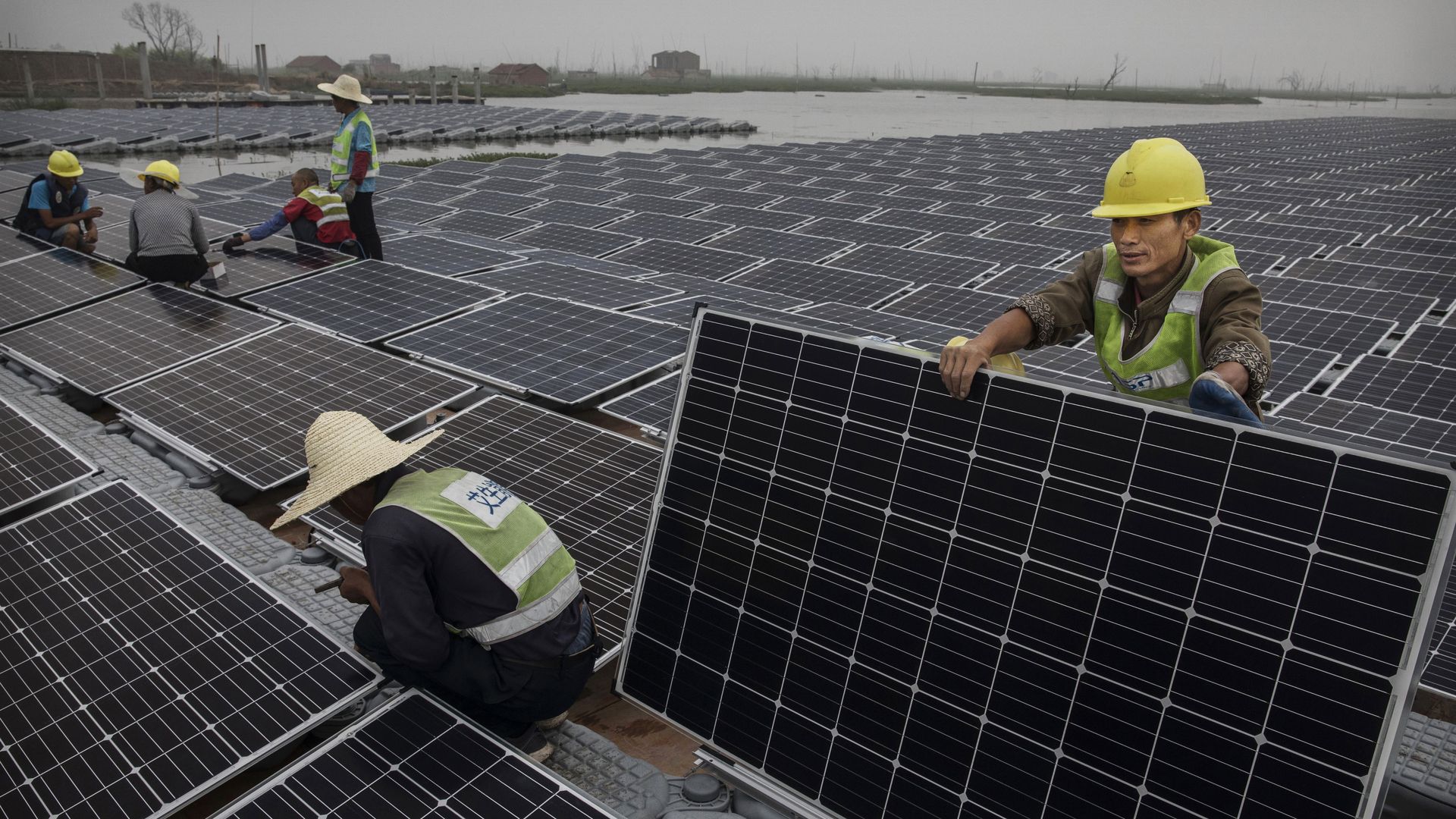Updated Apr 10, 2018 - Economy
Expert VoicesIn tariff reprisal, China puts U.S. energy in the crosshairs
Add Axios as your preferred source to
see more of our stories on Google.

Workers prepare panels that will be part of a large floating solar farm project under construction on June 13, 2017, in Huainan, Anhui province, China. Photo: Kevin Frayer via Getty Images
